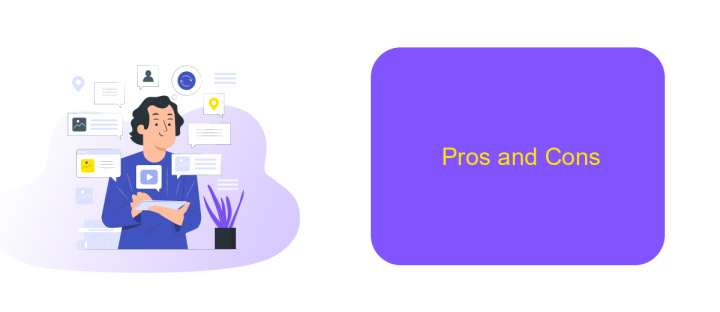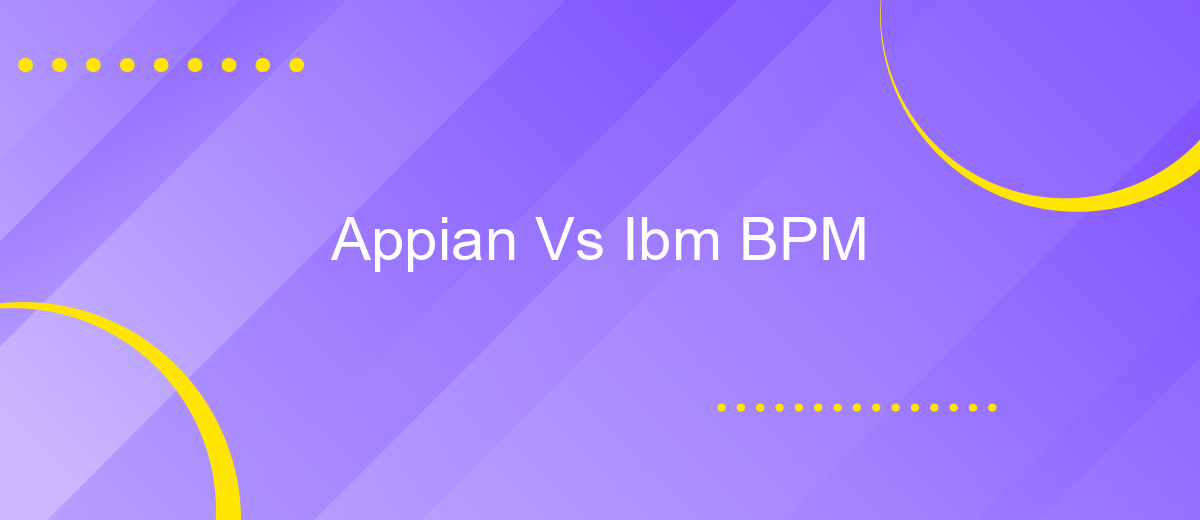Appian Vs Ibm BPM
When it comes to Business Process Management (BPM) solutions, Appian and IBM BPM are two leading platforms that offer robust capabilities for optimizing and automating workflows. This article delves into a detailed comparison of these two BPM giants, examining their features, strengths, and potential drawbacks to help organizations make an informed decision on which solution best meets their needs.
Overview
Appian and IBM BPM are two leading platforms in the business process management (BPM) industry, each offering unique features and capabilities. Appian is known for its low-code development environment, which allows for rapid application development and deployment. IBM BPM, on the other hand, provides a comprehensive suite of tools for modeling, executing, and optimizing business processes.
- Appian: Low-code platform, rapid deployment, user-friendly interface
- IBM BPM: Comprehensive toolset, robust process modeling, extensive integration capabilities
Both platforms support integration with various third-party services, enhancing their functionality. For instance, ApiX-Drive can be utilized to streamline integrations, connecting Appian or IBM BPM with other applications seamlessly. This integration capability is crucial for businesses looking to automate workflows and improve efficiency. Overall, the choice between Appian and IBM BPM depends on specific business needs, such as the requirement for rapid development versus comprehensive process management.
Features

Appian and IBM BPM are both powerful tools in the realm of business process management, each offering a unique set of features. Appian excels in its low-code development environment, enabling users to create custom applications quickly and efficiently. It also offers robust process automation capabilities, allowing businesses to streamline operations and enhance productivity. Appian's intuitive interface and integration with various third-party services, such as ApiX-Drive, simplify the process of connecting disparate systems and automating workflows.
IBM BPM, on the other hand, is renowned for its comprehensive suite of tools designed for large-scale enterprise environments. It provides advanced analytics and reporting features, giving businesses deep insights into their processes. IBM BPM's strong emphasis on compliance and governance ensures that all business processes adhere to regulatory standards. Additionally, its integration capabilities are extensive, supporting a wide range of APIs and services, including seamless integration with ApiX-Drive, to facilitate smooth and efficient data flow across platforms.
Pricing

When comparing the pricing models of Appian and IBM BPM, it's essential to consider the specific needs and scale of your business. Both platforms offer flexible pricing structures designed to cater to various organizational requirements.
- Appian: Appian typically offers a subscription-based pricing model, which can be tailored to the number of users and the level of functionality required. They provide a free trial to allow potential customers to evaluate the platform before committing.
- IBM BPM: IBM BPM also follows a subscription-based pricing model, but it can be more complex due to the wide range of features and services offered. Pricing can vary significantly based on deployment options, such as on-premises or cloud-based solutions.
Both Appian and IBM BPM offer robust integration capabilities with third-party applications. To streamline these integrations, you might consider using a service like ApiX-Drive, which simplifies the process of connecting various apps and automates workflows, potentially reducing overall costs and improving efficiency.
Pros and Cons

When comparing Appian and IBM BPM, it's essential to consider the strengths and weaknesses of each platform. Both offer robust solutions for business process management, but they cater to different needs and preferences.
Appian is known for its low-code development environment, which allows businesses to quickly build and deploy applications. IBM BPM, on the other hand, is recognized for its comprehensive set of tools and scalability, making it suitable for large enterprises.
- Appian Pros: User-friendly interface, rapid application development, strong mobile support, and a wide range of integrations, including ApiX-Drive for seamless API management.
- Appian Cons: Higher initial cost, limited customization compared to traditional coding, and a steeper learning curve for complex applications.
- IBM BPM Pros: Extensive features, scalability, strong support for complex processes, and integration capabilities with various enterprise systems.
- IBM BPM Cons: More complex to implement, higher maintenance costs, and a longer development cycle.
Ultimately, the choice between Appian and IBM BPM depends on the specific needs and resources of your organization. For rapid development and ease of use, Appian might be the better choice. For large-scale, complex process management, IBM BPM could be more suitable.
Conclusion
In conclusion, both Appian and IBM BPM offer robust solutions for business process management, each with its own strengths and areas of focus. Appian excels in providing a user-friendly interface and rapid application development capabilities, making it an excellent choice for organizations looking for agility and ease of use. On the other hand, IBM BPM stands out with its deep integration capabilities and extensive enterprise features, which are ideal for large-scale operations requiring complex process automation.
When choosing between Appian and IBM BPM, businesses should consider their specific needs, such as the scale of operations, the complexity of processes, and the level of integration required. Tools like ApiX-Drive can further enhance the integration capabilities of either platform, streamlining connections between various applications and services. Ultimately, the decision should align with the organization's strategic goals and operational requirements to ensure the most effective and efficient process management solution.
- Automate the work of an online store or landing
- Empower through integration
- Don't spend money on programmers and integrators
- Save time by automating routine tasks
FAQ
What are the key differences between Appian and IBM BPM?
Which platform is better for rapid deployment?
How do Appian and IBM BPM handle integration with other systems?
What are the scalability options for Appian and IBM BPM?
Which platform offers better support and community resources?
Time is the most valuable resource for business today. Almost half of it is wasted on routine tasks. Your employees are constantly forced to perform monotonous tasks that are difficult to classify as important and specialized. You can leave everything as it is by hiring additional employees, or you can automate most of the business processes using the ApiX-Drive online connector to get rid of unnecessary time and money expenses once and for all. The choice is yours!


